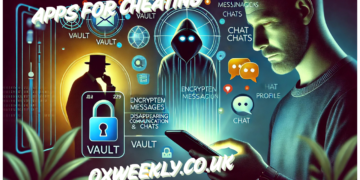Introduction: Who is Stacie and Why the Question “Stacie Wife Crazy”?
The phrase “Stacie wife crazy” might spark curiosity, or perhaps it is something that has been heard in conversations, movies, or social media debates. But what does it really mean? Is there something deeply concerning about a person named Stacie who is being labeled as “crazy”? The term “crazy” is often used loosely in everyday conversation, but when it comes to relationships, it can have a significant emotional and psychological impact. This article will attempt to delve into the dynamics of relationships, especially in contexts where one partner may feel emotionally overwhelmed or out of control, sometimes leading to the usage of terms like “crazy.” By exploring the role of communication, emotional intelligence, and understanding mental health, we can better address the core of what makes a partner—whether Stacie or anyone else—behave in ways that may seem confusing or alarming.
The Origins of “Crazy” in Relationships
The use of the word “crazy” in relation to a partner, especially a wife, often stems from perceived erratic or unpredictable behavior. In many cases, this term is more of a reflection of frustration rather than a true diagnosis of mental illness or irrationality. When one partner in a relationship exhibits behaviors that seem illogical, emotional, or difficult to handle, the other partner may resort to using labels like “crazy.” This is not necessarily an accurate or fair depiction, but it is a societal tendency to minimize or oversimplify complex emotional responses.
Emotional Overload and Reactionary Behavior
People, regardless of gender, react to stress, anxiety, or trauma in different ways. When faced with overwhelming emotions, some individuals might display behaviors that others interpret as extreme or “crazy.” For example, Stacie may act in a way that is perceived as volatile or highly emotional due to external pressures, such as work stress, family conflicts, or even unresolved issues within the relationship itself. These reactions are often a cry for help or an attempt to communicate needs that haven’t been properly addressed.
The Problem with Labeling Behavior as ‘Crazy’
Labeling someone as “crazy” without exploring the root causes of their behavior can be harmful. It negates the possibility of understanding the individual’s mental and emotional state, and further alienates them in the process. It’s essential to approach any behavioral issues in a relationship with empathy and a willingness to communicate openly.
Emotional Intelligence: Key to Understanding Complex Emotions
At the heart of many relationship issues is a lack of emotional intelligence (EQ), both in understanding oneself and in recognizing and responding to the emotions of others. When a partner like Stacie is acting in ways that seem unusual or “crazy,” it is often a result of unmet emotional needs or miscommunication. Emotional intelligence involves:
- Self-awareness: Understanding one’s own emotional state and its impact on behavior.
- Self-regulation: Being able to manage emotional responses and reactions.
- Empathy: Understanding and empathizing with the feelings of others.
- Social skills: Building effective communication channels and resolving conflicts.
When these components of emotional intelligence are lacking, it can lead to misunderstandings, frustration, and labels like “crazy.” If Stacie feels unheard or misunderstood, her emotional responses might appear intense, which may be unfairly interpreted as “crazy” by her partner.
The Role of Mental Health in Emotional Outbursts
Mental health conditions can often contribute to erratic behaviors. Anxiety, depression, bipolar disorder, and borderline personality disorder are just a few examples of conditions that may cause individuals to experience emotions that others perceive as out of control.
Is Stacie’s Behavior a Sign of a Deeper Issue?
Before jumping to conclusions about Stacie’s actions, it’s important to consider the possibility that her behavior could be tied to mental health challenges. Stress, depression, or trauma could be at the root of her emotional outbursts or heightened emotional states. Understanding mental health issues is crucial for responding appropriately to a partner’s behavior.
If Stacie is struggling with mental health issues, labeling her as “crazy” can be damaging and unproductive. Instead, a partner who cares should encourage open conversations, provide support, and seek help from professionals when necessary. Therapy, counseling, or psychiatric care can make a significant difference in helping individuals manage their emotions and overcome mental health challenges.
Communication Breakdown: A Common Culprit
One of the most common reasons for confusion in relationships is poor communication. When two people are not on the same page or cannot effectively communicate their feelings, it leads to misunderstandings and emotional disconnection. Stacie may feel like her partner isn’t listening to her needs, or that her emotions are being dismissed.
Unspoken Expectations and Misunderstandings
In relationships, each partner carries certain expectations, often unspoken or assumed. When these expectations aren’t met, one or both individuals may feel frustrated or upset. If Stacie feels as though her partner isn’t living up to these unspoken expectations, her behavior might escalate in an attempt to express dissatisfaction. Her partner might interpret this behavior as being “crazy” or unreasonable without understanding the deeper emotional cause.
Active Listening and Open Dialogue
To avoid the “crazy” label, it’s essential for partners to practice active listening and validate each other’s feelings. Instead of responding with frustration, a partner should seek to understand what is truly causing emotional turmoil. What is Stacie really feeling? Is she hurt, insecure, anxious, or feeling ignored? This shift in perspective—away from judgment and towards empathy—can foster better understanding and healthier communication.
The Impact of Social Pressure and Gender Roles
Social expectations and gender roles also play a significant part in how emotional behaviors are perceived. Women, for example, are often labeled as “crazy” when they express emotions strongly, while men may be labeled differently or receive more sympathy for similar behaviors. Stacie’s behavior might be viewed as “crazy” simply because it doesn’t align with societal expectations of how women should behave in relationships.
The Double Standard
The stereotype of the “crazy wife” is perpetuated in popular culture, where women are often depicted as irrational, overly emotional, or unstable when dealing with relationship issues. This double standard not only harms the individual being labeled but also perpetuates harmful narratives about gender and emotions. When a woman like Stacie expresses her frustration or pain, her feelings may be minimized or trivialized, contributing to the misconception that she is “crazy.”
Moving Towards Healing: Strategies for Addressing “Crazy” Behavior in Relationships
If you find yourself or your partner using the term “crazy” to describe emotional outbursts or difficult behavior, it may be time to reflect on the relationship dynamics. Here are some strategies for addressing emotional challenges in a healthy way:
- Open Communication: Encourage honest, open dialogue where both partners can express their feelings without fear of judgment.
- Seek Professional Help: Therapy, both individual and couples’ counseling, can provide the tools needed to address underlying emotional issues and improve communication.
- Practice Empathy: Instead of labeling behaviors, try to understand the emotional needs behind the actions.
- Develop Coping Mechanisms: Both partners can benefit from learning healthy ways to cope with stress, anger, or anxiety, such as mindfulness, meditation, or exercise.
- Educate on Mental Health: Understanding mental health challenges and learning how to support a partner through difficult emotional moments is key to fostering a loving and supportive relationship.
Conclusion: Understanding, Compassion, and Growth in Relationships
The label “Stacie wife crazy” is more than just a surface-level observation of behavior—it often reflects a deeper lack of understanding or empathy within a relationship. Rather than labeling someone as “crazy,” it is more beneficial to focus on what the behavior really signifies. Is it a result of emotional overload, poor communication, mental health struggles, or societal pressures? By addressing these root causes, both partners can create a more supportive, loving, and healthy dynamic.
In the end, relationships are complex, and it’s important to approach emotional outbursts or difficult behavior with care, compassion, and a willingness to grow together. Instead of labeling behaviors as “crazy,” partners should work towards understanding and supporting one another through the challenges that life presents

































